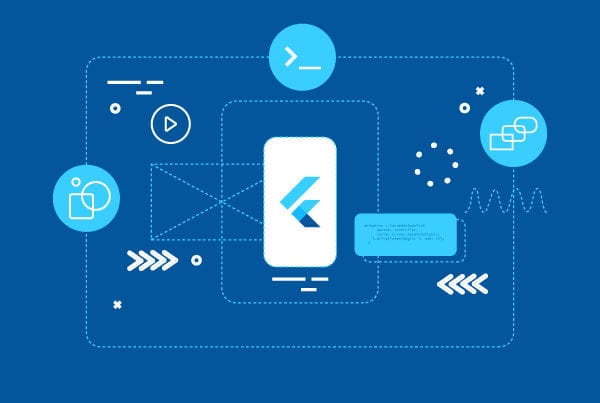8 Latest Trends In Mobile App Development
Smartphones have secured the most important part of our regular lives. We wake up with an alarm, we use many apps like WhatsApp, Facebook, and listen to music, read the news, watch videos on YouTube, check our email, etc. Everything works smoothly with the mobile apps installed on our mobile devices.
As the world is moving forwards mobile applications are gaining momentum in all areas of life and are becoming an integral part of the digital ecosystem. In recent years, many tech giants have invested heavily in mobile app development companies. Small businesses are also gradually realizing the importance of mobile applications and integrating them into business processes. App development is one of the exciting trends in the industry, and many companies want to have the advantage of this trend.
There are a wide variety of technologies that can be effective for the mobile app development industry. Let us see some mobile app development trends.
Artificial intelligence and machine learning
Automatic face detection to simplify portraits no longer works. It’s becoming the standard. Automatic filters and cute stickers are one of the success factors behind Snapchat. As machines can recognize images and process natural language (with little success), the placement of AI-enabled functions in apps will be an increasing trend.
AI apps vary depending on the context. It could be a voice recognition feature, smart filters applied to the camera, or even an automatic assistant that adjusts the camera before recording. Apple Siri and Google Assistant are some of the best-known examples of mobile apps with AI support. However, the possibilities for implementing AI in custom mobile app development are endless.
Smartphones can use to analyze industrial machine noise, which serves to identify signs of impending failure. Sometimes the engine sound changes a little so that the human ear cannot see but the machine can. Not surprisingly, this AI remains one of the hottest technology trends.
EMM and APM
Enterprise Mobile Management (EMM) and Application Performance Management (APM) are the two main mechanisms of the development process for mobile enterprise applications.
App Performance Management is a mobile metric, shared with Google in 2016. It was released to reduce issues that tend to slow down app performance. Therefore, APM contributes to an increase in overall functionality.
Because of this importance, APM has become a suitable tool for quality assurance testers to test applications.
On the other hand, the EMM or Enterprise Mobility Management platform helps companies securely activate the mobile devices employees use and support portable computers in organizing business events.
Internet of Things (IoT) integration in mobile applications
The increasing demand for integrating smart things into applications means IoT applications to develop. IoT is a network of items related to the Internet that collects and exchanges data. The demand for IoT integration, can be seen in iOS and past trends in mobile application development. Emerging IoT technologies are shaping healthcare, AI devices, smart cars, smart homes, and more.
Portable appearance
For example, the demand for portable appearance, smartwatches, wristbands, and matching trackers has been increasing recently. Given the portable device market’s enormous potential, one of the most promising development trends is portable applications. mobile applications to consider in 2020.
Cloud-controlled mobile applications are developing
Everyone from customers to technology professionals has heard about cloud technology and its impact on our collective lives. Nowadays, cloud computing has finally found its place in mobile applications. We are now looking at a robust mobile application that extracts data directly from the cloud and takes up very little space on the smartphone’s internal storage.
M-commerce is setting the new standard
Today, many customers like to purchase via Google Pay and Apple Pay over credit/debit cards. It gives m-commerce a boost.
Wearables are also driving m-commerce and making the process more intuitive for people. Apart from forecasting analytics and data collection, the wearable device market will also play an essential role in the future of e-commerce and customer loyalty.
Chatbots
Chatbots are digital applications that simulate the way humans talk to help users meet their needs. There are various types of chatbots that you can look at: virtual assistants such as Google Alexa, Assistant, Siri, and there are other types of chatbots that you can find on websites, web apps, and the like.
Chatbots are one of the best trends in mobile app development for many reasons. One of the reasons is the interactive conversation experience they offer. Another fact is becoming increasingly clear to UI / UX designers and chatbot developers worldwide – traditional app interfaces aren’t enough anymore! The mobile chatbot application offers innovative use cases as an application interface that allows the user to interact seamlessly and humanely with the company even when there is no one around.
Multiplatform development
Mobile app development future for Android includes Flutter, a new technology from Google. There are many reasons why Android developers should be wary of Flutter in the future. Flutter provides you with comprehensive tools for developing iOS and Android apps from a single codebase. The Flutter platform is a JavaScript bridged mobile SDK that requires reactive views.
Blockchain and decentralized applications
Blockchain technology is well known as the technology that drives cryptocurrency, with Bitcoin being the most well-known. The main idea behind this is to create a decentralized database that is piracy-proof and fraud-protected.
The blockchain technology is used to give safety to payments or to access the network by generating tokens, used for authentication. With database decentralization, no one can modify the records in the database to get unauthorized access.
Technology is usually only seen in the context of cryptocurrencies but is changing with the tech giants’ interest. Microsoft has launched a blockchain-based framework called Coco, which aims to increase blockchain adoption in the corporate sector and be a starting point for developing blockchain-based mobile applications.
Given mobile app technology, software outsourcing companies can’t rely on outdated tools and trends during the development phase.
So far, 2020 is full of potential, and mobile app developers can improve their skills by getting an overview of the latest mobile app development trends. If you follow this trend closely, your business will benefit from it.
Author Bio
This is Sharon Winget, Staff Writer with GoodFirms, a review and rating platform of top IT companies & software. A tech geek at heart, I firmly believe technology can transform societies. I enjoy blogging about web design, email marketing, and content marketing.





